39 animal cell structure with labels
› learn › natural-scienceConstruction of the Cell Membrane - Wisc-Online OER The cell membrane allows some things to pass through, and not others, which is why it needs transport proteins to let the other things through that the cell needs. 0 Comments Posted by Faith Song on 2/4/2016 3:48:59 PM 0.00 Thumps Up Thumps Down Animal Cell Organelles And Their Functions These cells have different structures, with the most diverse metabolic functions. Under a microscope, each type of animal cell is different, but their internal structures and organelles are similar. ... [in this figure] the anatomy of an animal cell with organelles labeled. It helps in the cytoplasmic streaming in plant cells e.g., nitella and ...
en.wikipedia.org › wiki › History_of_cell_membraneHistory of cell membrane theory - Wikipedia In this view, the cell was seen to be enclosed by a thin surface, the plasma membrane, and cell water and solutes such as a potassium ion existed in a physical state like that of a dilute solution. In 1889, Hamburger used hemolysis of erythrocytes to determine the permeability of various solutes. By measuring the time required for the cells to ...

Animal cell structure with labels
› articles › s41580/021/00407-0A guide to machine learning for biologists | Nature Reviews ... Sep 13, 2021 · Classes and labels are usually represented by an ... CNNs often use textures (such as stripes in animal fur) ... M. End-to-end differentiable learning of protein structure. Cell Syst. 8, ... Structure and Function of the Nucleus in Animal Cells - Study.com The nucleolus (plural: nucleoli) is a small, dense structure within the nucleus that contains ribosomal DNA, RNA, and ribosomal proteins to form ribosomes. The ribosomes, after they are transported... Plant Cell- Definition, Structure, Parts, Functions, Labeled Diagram Plant cells also have structural organelles that are not found in the animals' cells including the cell wall, vacuoles, plastids e. g Chloroplast. Animal cells also contain structures that are not found in the plant cells such as, cilia and flagella, lysosomes, and centrioles. Figure: Labeled diagram of plant cell, created with biorender.com
Animal cell structure with labels. 23 Exciting Cell Projects For Middle Schoolers 1. Cell Rice Krispies. This tasty cell model will make a great addition to any classroom. All you need is rice Krispies, marshmallow fluff, and candies to act as the different parts of your cell. This activity is such a fun extension of any cellular biology unit! Learn More: WordPress. Interesting Animal Cell Facts With their Examples and Uses - Study Read Animal Cell Facts. Labeled animal cells showing cell organelles. 1. Lack of nucleus. Animal cells are eukaryotic and have a prominent nucleus. But, interestingly, not all cells have a nucleus in them. For example, red blood cells have no nucleus. Hence, they are called red blood corpuscles instead of cells. These RBC cells do not have a nucleus ... Animal Cell- Definition, Structure, Parts, Functions, Labeled Diagram Animal cells are smaller than the plant cells and they are generally irregular in shape taking various forms of shapes, due to lack of the cell wall. Some cells are round, oval, flattened or rod-shaped, spherical, concave, rectangular. This is due to the lack of a cell wall. Free Printable Plant and Animal Cells Worksheets - Homeschool Giveaways Label the Parts of an Animal Cell Printable Label and Color the Parts Animal Cell - This animal cell handout is perfect for students studying the different parts of the cell including the SER (Smooth Endoplasmic Reticulum), Golgi Bodies, and more.
owlcation.com › stem › 3d-cell-modelHow to Create 3D Plant Cell and Animal Cell Models for ... Toothpicks and stickers make great labels, and they let everyone know what's what on your cell model. A Deeper Understanding Building a cell model should deepen your understanding of the cell and all of its distinct parts. It's also important to understand the functions of each part and how they work together. Let's take a closer look: › cells › bactcellInteractive Bacteria Cell Model - CELLS alive Bacteria (Prokaryotes) are simple in structure, with no recognizable organelles. They have an outer cell wall that gives them shape. Just under the rigid cell wall is the more fluid cell membrane. The cytoplasm enclosed within the cell membrane does not exhibit much structure when viewed by electron microscopy. FDA's Role in Veterinary Regenerative Medicine | FDA Veterinary regenerative medicine is an active area of research for developing new cell and tissue therapies for animals. Such therapies are called animal cells, tissues, and cell- and tissue-based ... Plant Cells vs Animal Cells: 10 Key Differences Explained Plant vs Animal Cells: Size. Animal cells are generally much smaller than plant cells. Animal cells are usually between 10 and 30 micrometres while plant cells are between 10 and 100 micrometres. Plant vs Animal Cells: Cell Wall. Animal cells do not have a cell wall. Instead they have a cell membrane.
Animal Cells: Labelled Diagram, Definitions, and Structure - Research Tweet Cilia are small, wiggling arm-like structures, whereas flagella are like a tail. Both structures are made of long protein fibers called microtubules, with a structure where nine microtubules form a ring around two central microtubules. Cell Membrane The cell membrane encloses the cell's contents. It monitors what comes in, and what goes out. 17 Differences Between Plant and Animal Cells - Bio Explorer However, listed below are some of the most common types of animal cells. 1. Nerve Cells Nerve cells are specialized cells that electro-chemically send impulses or information to and from the sensory receptors and the central nervous system. 2. Blood Cells Eukaryotic Cell: Definition, structure and organelles | Kenhub The microfilaments and microtubules are a part of the cellular architecture that helps give the cell its structure ( cytoskeleton) and play a role in cell replication. They also contribute to the formation of cilia and flagella in some cell lines that require motility. Cytoplasm Cytoplasma 1/6 Ribosomes Structure and parts of a sperm cell - inviTRA This labelled diagram shows the structure of a sperm cellin detail, which has the following parts: Head With its spheric shape, it consists of a large nucleus, which at the same time contains an acrosome. The nucleus contains the genetic information and 23 chromosomes.
Animal Cell Overview, Diagram, & Function - study.com Animal cells are eukaryotic cells with membrane-covered organelles, a nucleus, and mitochondria. Animal cells are found in all organisms belonging to the animal kingdom. Their shapes and sizes...
The diagram below shows four labeled structures of an animal cell ... The diagram below shows four labeled structures of an animal cell. Animal Cell Mitochondria Nucleus Cell Membrane Cytoplasm Which of the following best describes the function of the nucleus? A. The nucleus contains genetic information and acts as the control center of the cell. В.
Animal Cell Organelles And Their Functions - ksmu.info Learn about the ultrastructure and organelles of animal, plant, fungal and. Lysosomes (organelles that digest macromolecules), and centrioles (cylinders of microtubules in the centrosome, involved in cellular division).; Source: microbenotes.com The functions of the specific organelle is laso mentioned in the.
What Do Plant Cells Have That Animal Cells Do Not? Both plant cells and animal cells have certain parts that do not exist in the other. Both plants and animals have a cell structure that is different from each other. Further, animal cells have lysosomes and centrosomes that are absent in the plant cells. So, let us look at some parts that are unique to plant cells -. Cell Wall.
Animal Cell Organelles And Their Functions - webfacil.info [in this figure] the anatomy of an animal cell with organelles labeled. Organelles of the animal cell and their function. Parts Of Animal Cell And Their Functions Slideshare / Animal Cell from alvarohougee03513.blogspot.com For example, the nucleus is the cell's brain,. Animal cells are the basic unit of life […]
Animal Cell: Animal Cell Diagram: Types, and Functions - Embibe Mitochondria is a sausage or cylindrical-shaped structure with a diameter of 0.2-1.0µm and a length of 1.0-4.1µm. Mitochondria are the sites for aerobic respiration and produce energy in ATP. Ribosomes: It is a granular-shaped structure composed of RNA. It is the site for the synthesis of protein. The eukaryotes consist of 80 S ribosomes.
Consider this animal cell. The organelles in an animal cell are labeled ... The organelles in an animal cell are labeled. Part D are stacked tubular structures. Which organelles are labeled D, and what is one feature that distinguishes them from the other labeled organelles? chloroplasts; the only organelles that produce sugars from sunlight ribosomes; only found in animal and bacterial cells centrioles; found in ...
Plant and Animal Cell Worksheets and Animal Cell Project Grade 6 vocabulary words included in our plant and animal cell worksheets cover all the parts of plant and animal cells and more: nucleus, cell wall, vacuole, chloroplast, lysosome, endoplasmic reticulum, cytoplasm, ribosomes, golgi bodies, mitochondrion, proteins, mitochondria, plasma membrane, golgi apparatus, eukaryotic cells, chlorophyll, nucleolus, …
Plant Cells Vs. Animal Cells (With Diagrams) - Owlcation Centrioles: Animal cells contain organelles known as centrioles, which are not present in plant cells. Centrioles help move chromosomes during cell division. Since animal cells are softer than plant cells, centrioles are required to ensure the chromosomes are in the proper location when the cell divides.
› heliyon › guide-for-authorsGuide for Authors: Heliyon - Cell Figure labels Please use uniform lettering and sizing in your original artwork and embed the used fonts if the application you are using provides that option. To ensure labels are legible, we suggest using the following fonts in your illustrations: Arial, Helvetica, Courier, Times, Times New Roman, and/or Symbol, sizing them according to the ...
Types of Plant Cell- Definition, Structure, Functions, Labeled Diagram Palisade parenchyma cells are columnar elongated structured cells found in a variety of leaves, lying below the epidermal tissue. Palisades are closely linked cells in layers of mesophyll cells found in leaf cells. Ray parenchyma has both radial and horizontal arrangements majorly found within the stem wood of the plant.
Histology, Cell - StatPearls - NCBI Bookshelf The cell is the fundamental organizational unit of life. All living things are composed of cells, which then further subdivide based on the presence or absence of the nucleus, into two types: eukaryotic cells (Greek, Eu=true, karyo=nut, nucleus) - these cells are present in all the human, animal and plants with a clear, distinct nucleus. Prokaryotic cells are some bacteria and blue-green algae ...
Animal Cell Labeling Quiz Questions And Answers - ProProfs In this one, we'll be giving you a question referring to a given diagram and asking you to label it. Simple, right? Let's find out how many you get right. All the best! Let's go! Questions and Answers 1. Which cell organelle is represented by arrow #1? A. Golgi Apparatus B. Nucleus C. Cell Membrane D. Cytoplasm 2. Which of these is an animal cell?
Animal And Plant Cell Quiz - ProProfs Quiz Ribosomes C. Cell Wall D. Cell Membrane 5. Which organelle would you expect to find in a plant cell but not an animal cell? A. Smooth endoplasmic reticulum B. Mitochondria C. Ribosome D. Chloroplast 6. What part of the cell is identified with the arrow? A. The nucleus B. The ribosome C. The vacuole D. The chloroplast 7.
Learn the parts of a cell with diagrams and cell quizzes The first is the cell nucleus, which houses DNA in the form of chromosomes. The second is the cytoplasm, a thick solution mainly comprised of water, salts, and proteins. The parts of a eukaryotic cell responsible for maintaining cell homeostasis, known as organelles, are located within the cytoplasm.
› mmwr › previewGuidelines for Safe Work Practices in Human and Animal ... Jan 06, 2012 · Dispose of animal cadavers with potential zoonotic infectious agents by appropriate decontamination (e.g., incineration, alkaline digestion or other methods), and do not return them to animal owners for private burial. 5.2. The Autopsy/Necropsy Suite. 5.2.1. Inspect the body/carcass. Search for implanted items retained after death.
Plant and Animal Cell: Labeled Diagram, Structure, Function - Embibe Plant Cell: Plant cells are eukaryotic cells with a true nucleus along with specialized structures called organelles that carry out certain specific functions. Animal Cell: An animal cell is a type of eukaryotic cell that lacks a cell wall and has a true, membrane-bound nucleus along with other cellular organelles.
Plant Cell- Definition, Structure, Parts, Functions, Labeled Diagram Plant cells also have structural organelles that are not found in the animals' cells including the cell wall, vacuoles, plastids e. g Chloroplast. Animal cells also contain structures that are not found in the plant cells such as, cilia and flagella, lysosomes, and centrioles. Figure: Labeled diagram of plant cell, created with biorender.com
Structure and Function of the Nucleus in Animal Cells - Study.com The nucleolus (plural: nucleoli) is a small, dense structure within the nucleus that contains ribosomal DNA, RNA, and ribosomal proteins to form ribosomes. The ribosomes, after they are transported...
› articles › s41580/021/00407-0A guide to machine learning for biologists | Nature Reviews ... Sep 13, 2021 · Classes and labels are usually represented by an ... CNNs often use textures (such as stripes in animal fur) ... M. End-to-end differentiable learning of protein structure. Cell Syst. 8, ...
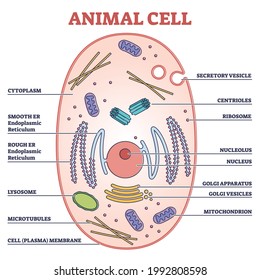
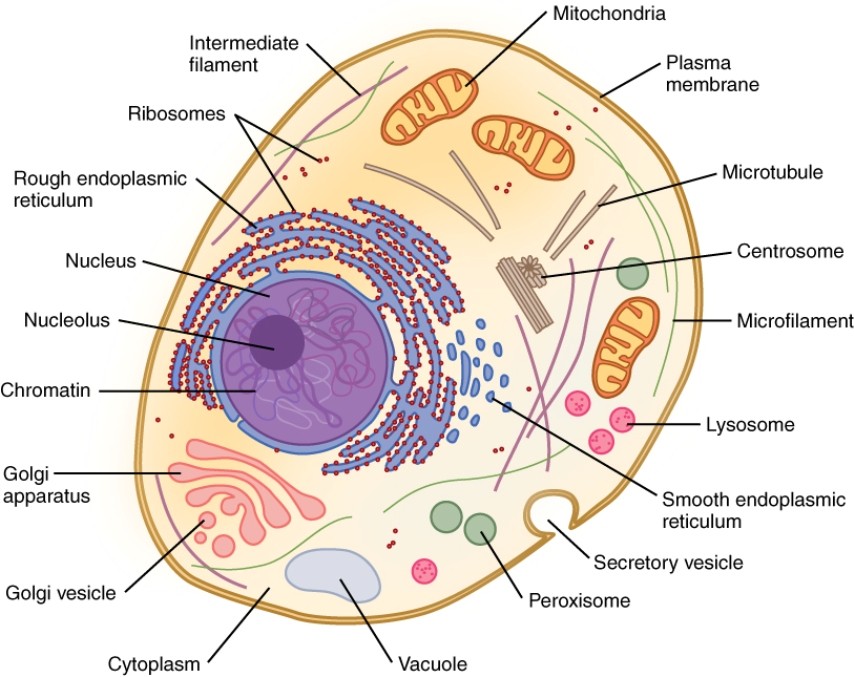
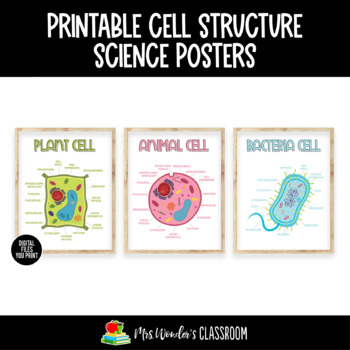
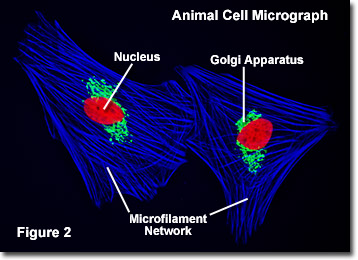
:max_bytes(150000):strip_icc()/Eukaryotic_Cell_animal2-34003fac8e214fa2ae663d9f62206b03.jpg)


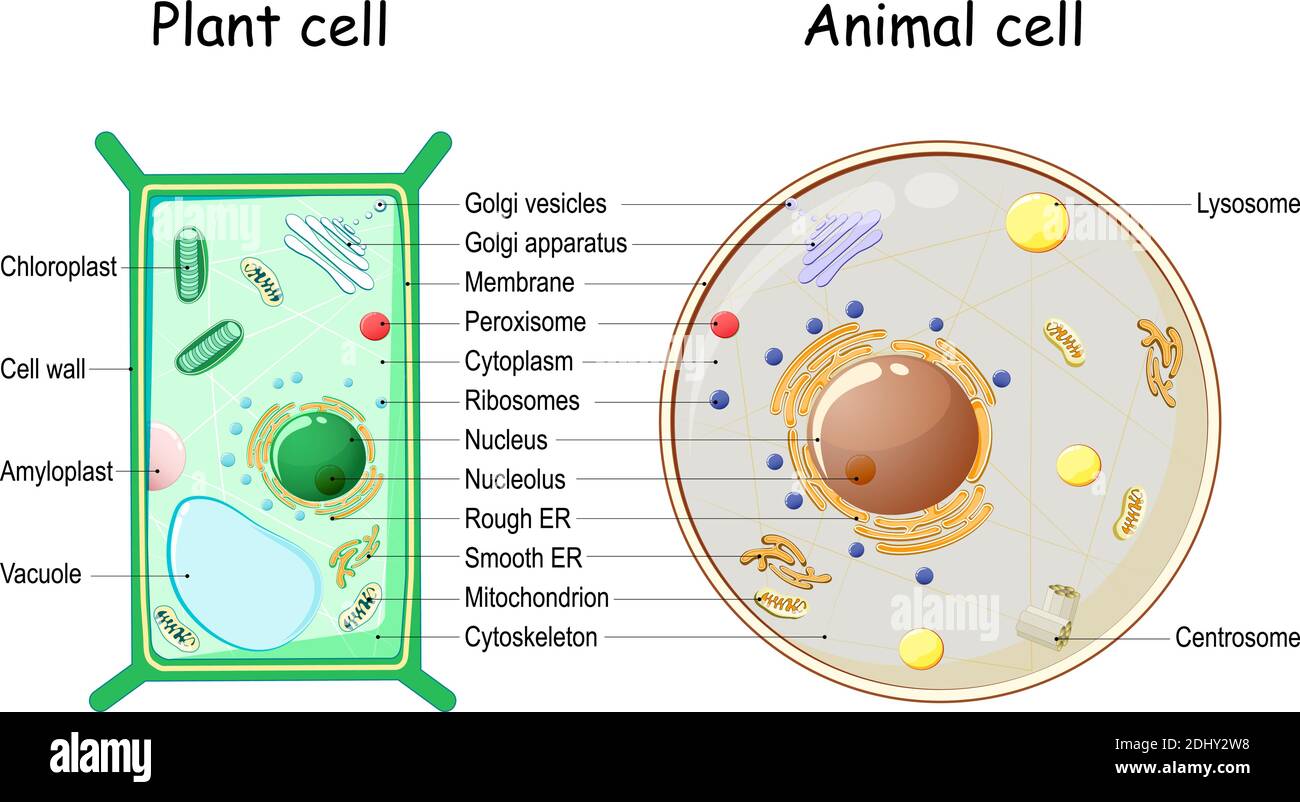

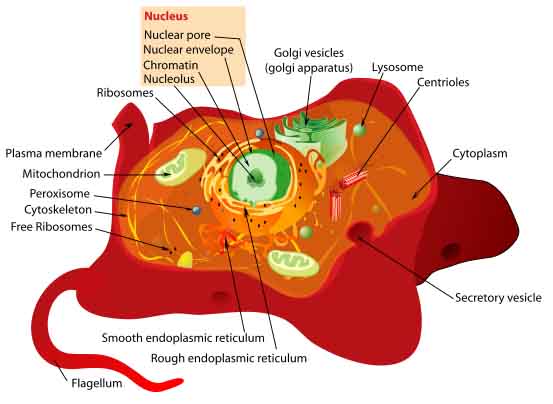




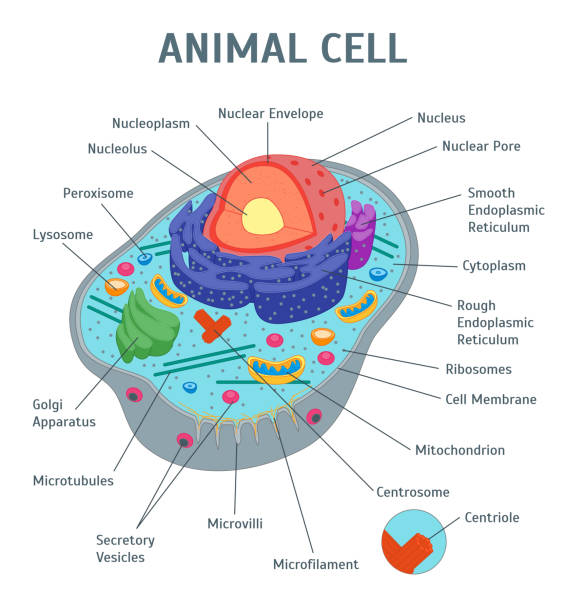
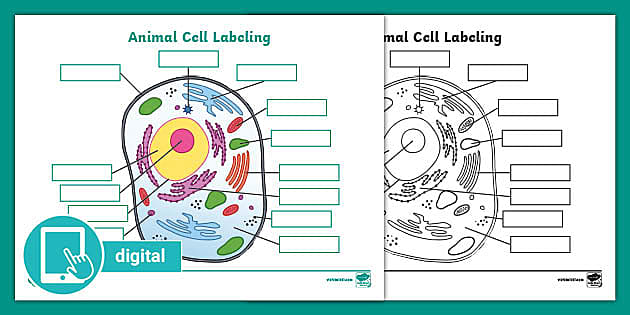
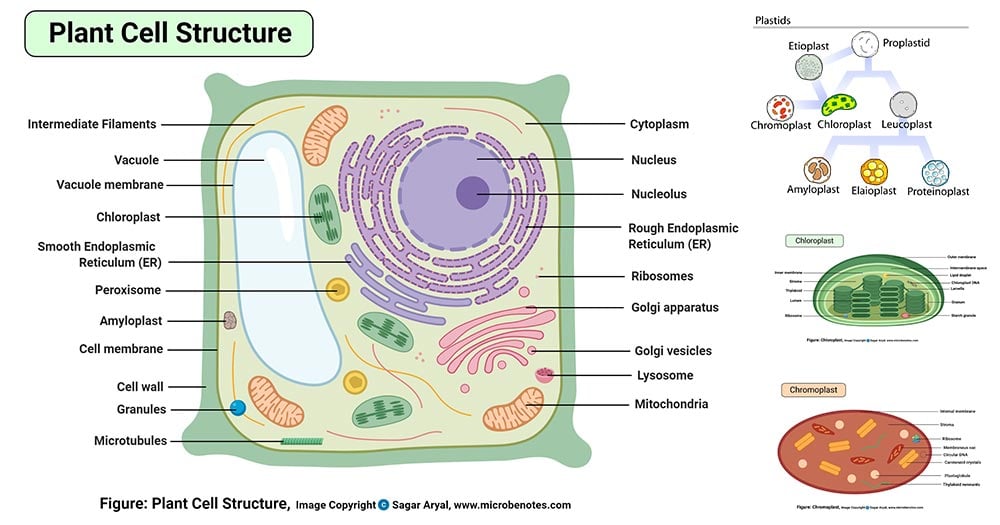

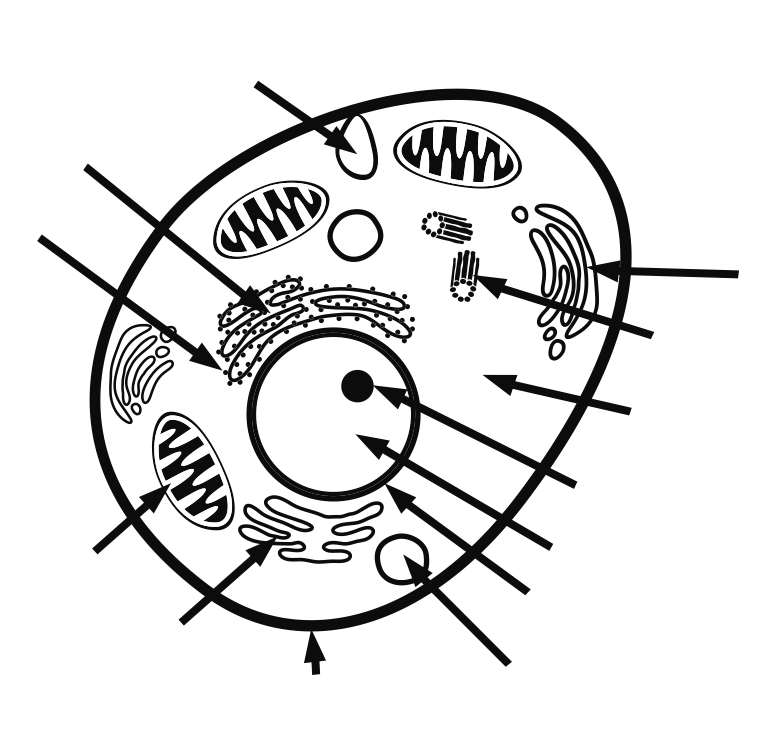

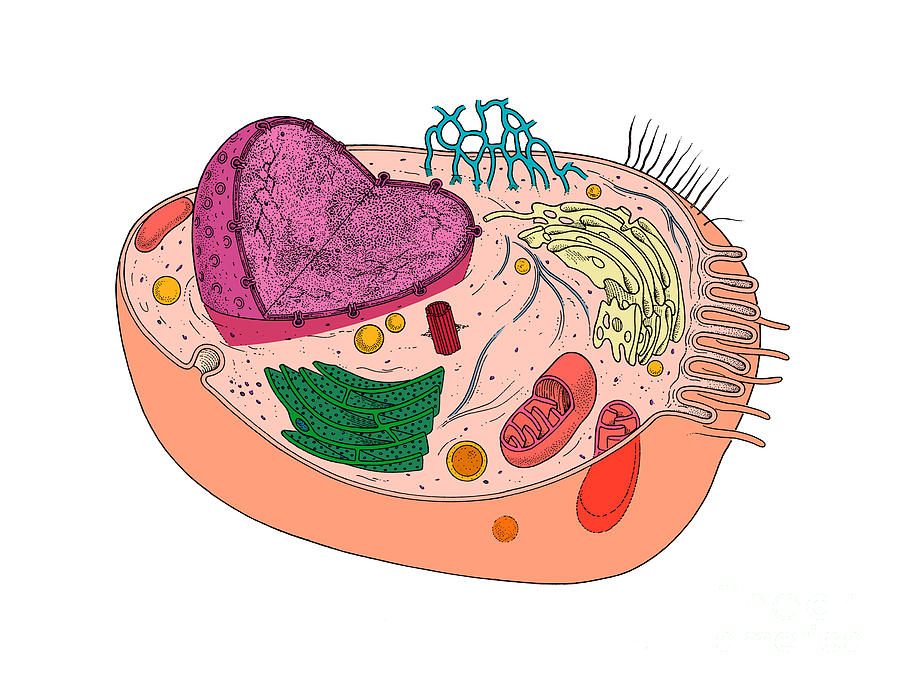

:max_bytes(150000):strip_icc()/animal-cells-vs-plant-cells-373375_final-5b462d7fc9e77c00375014f1.png)
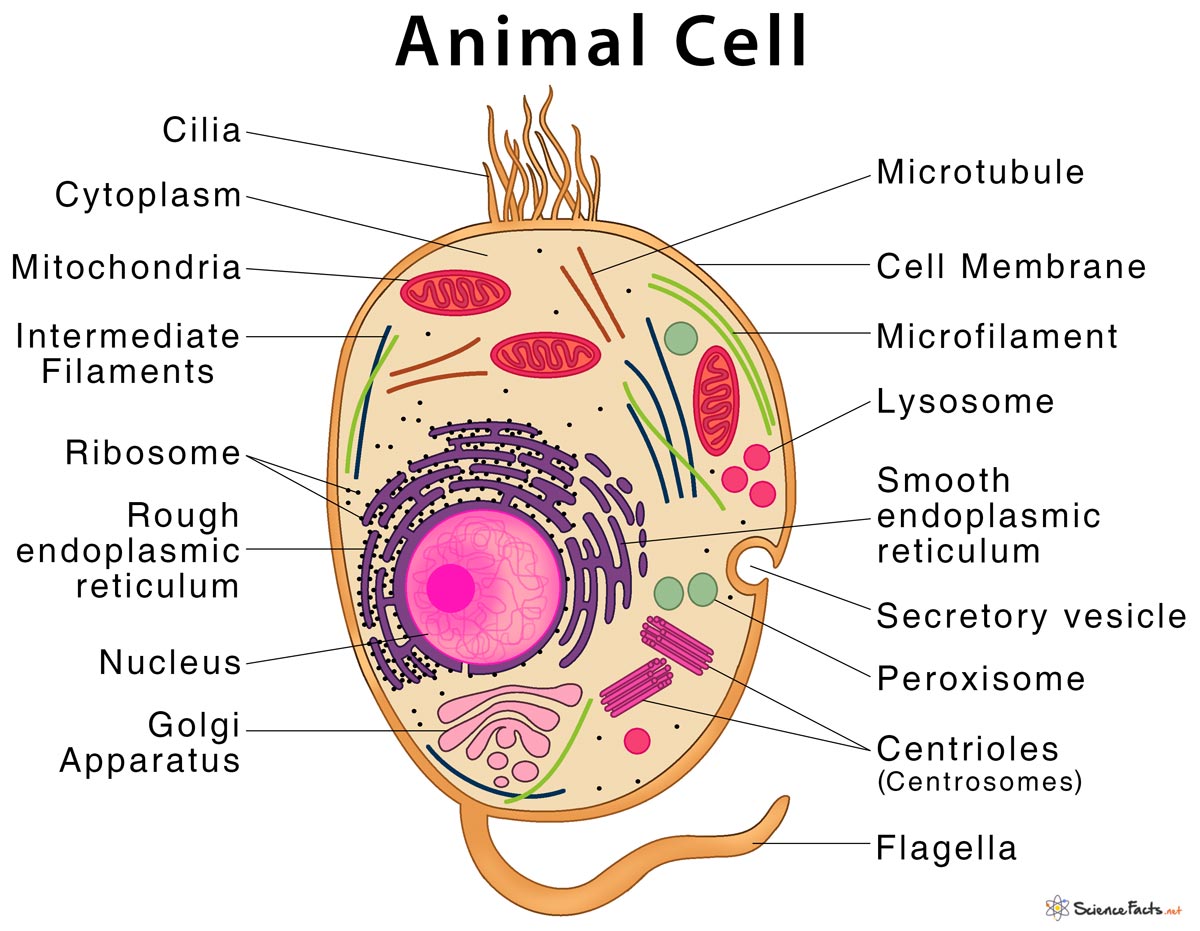
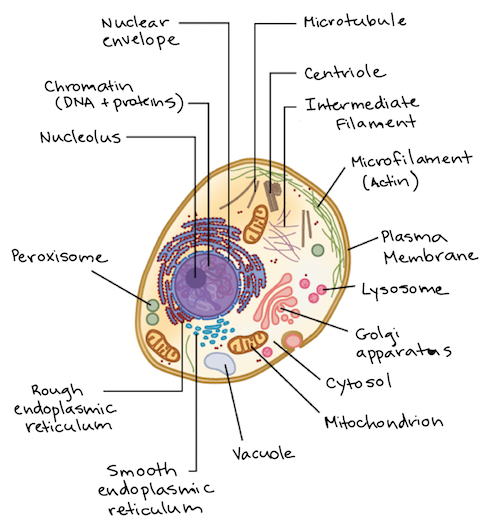
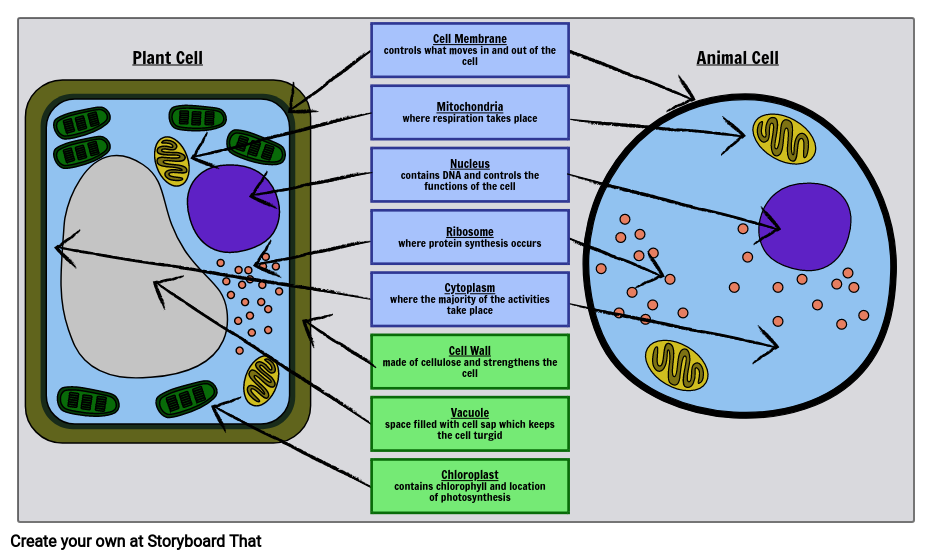

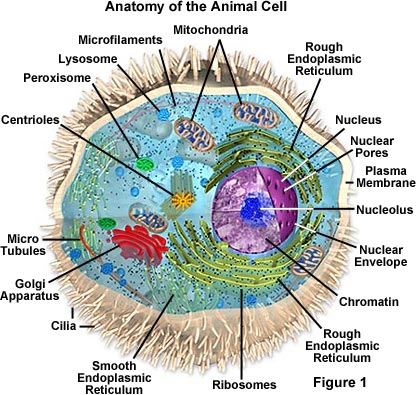

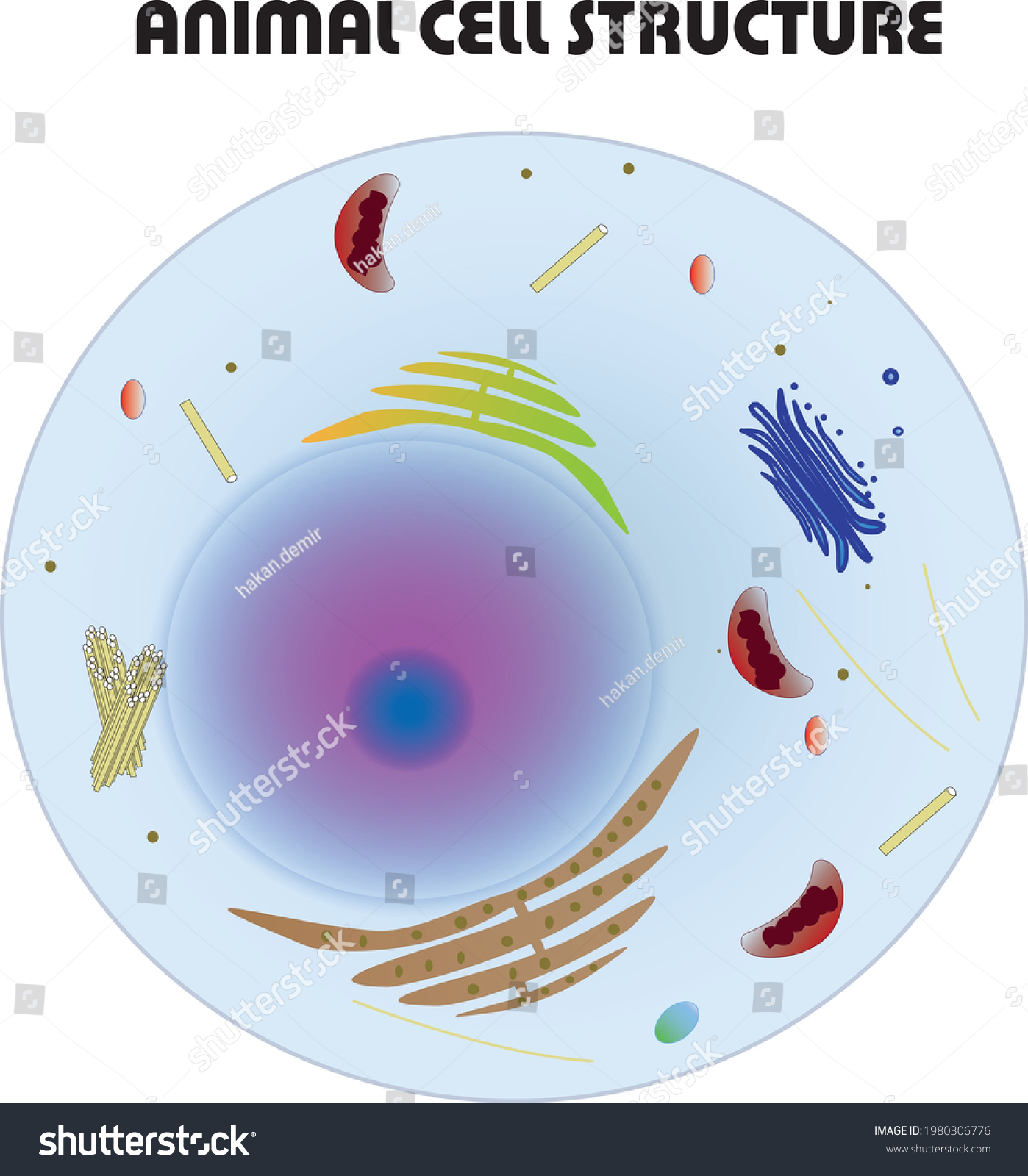

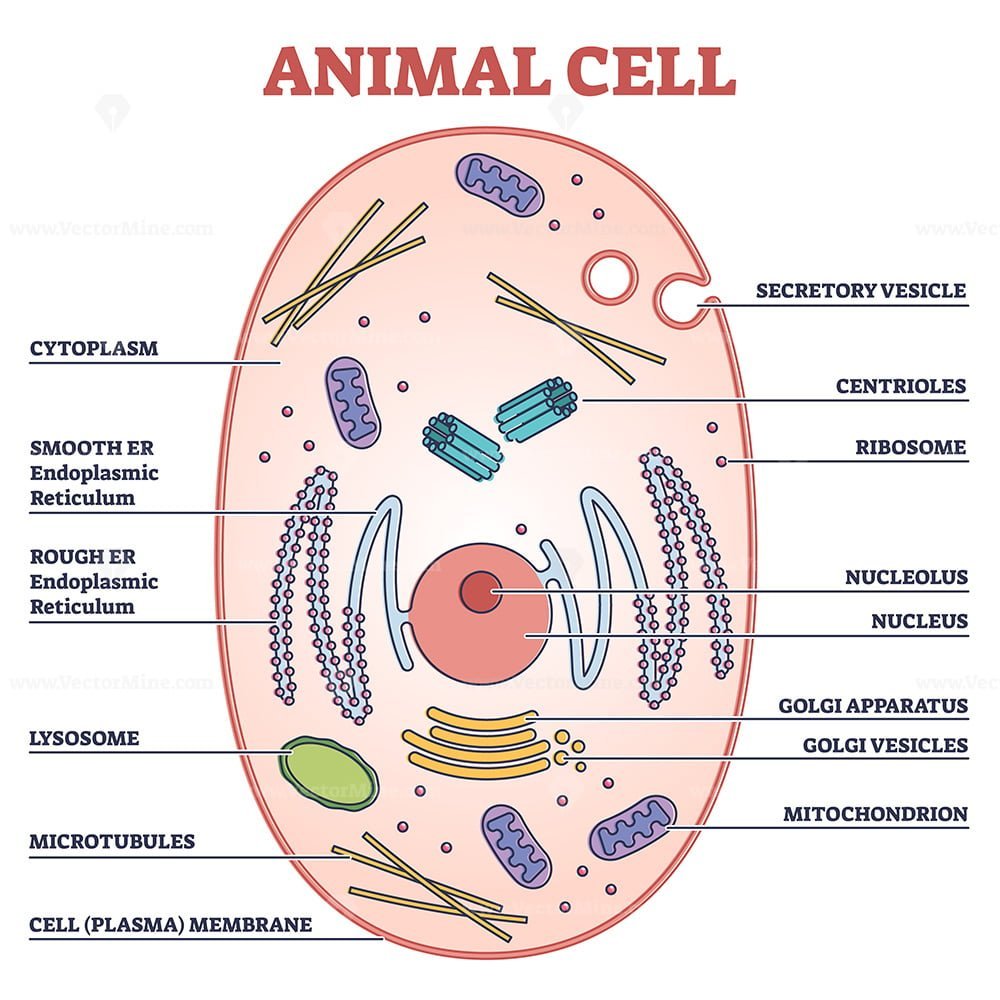

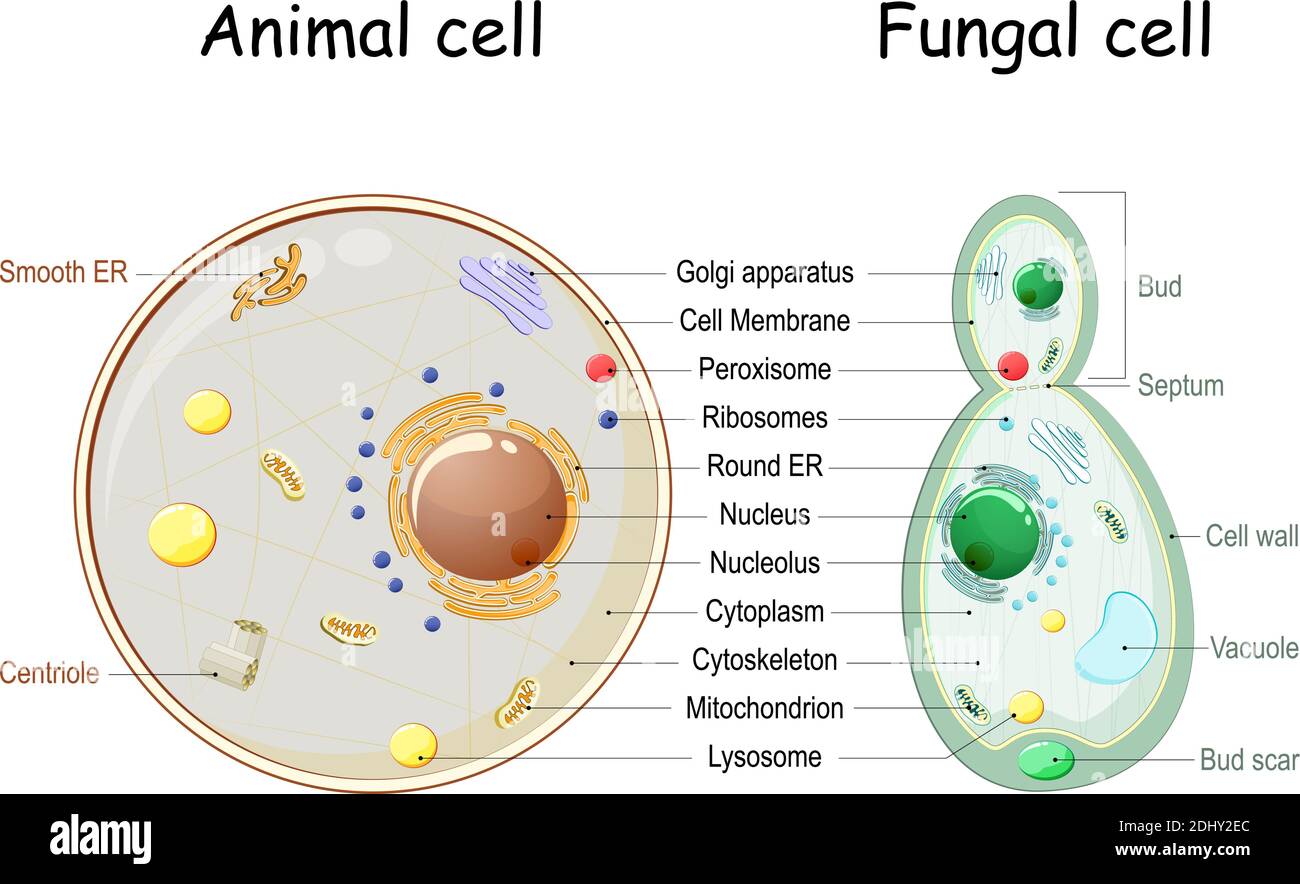
Post a Comment for "39 animal cell structure with labels"